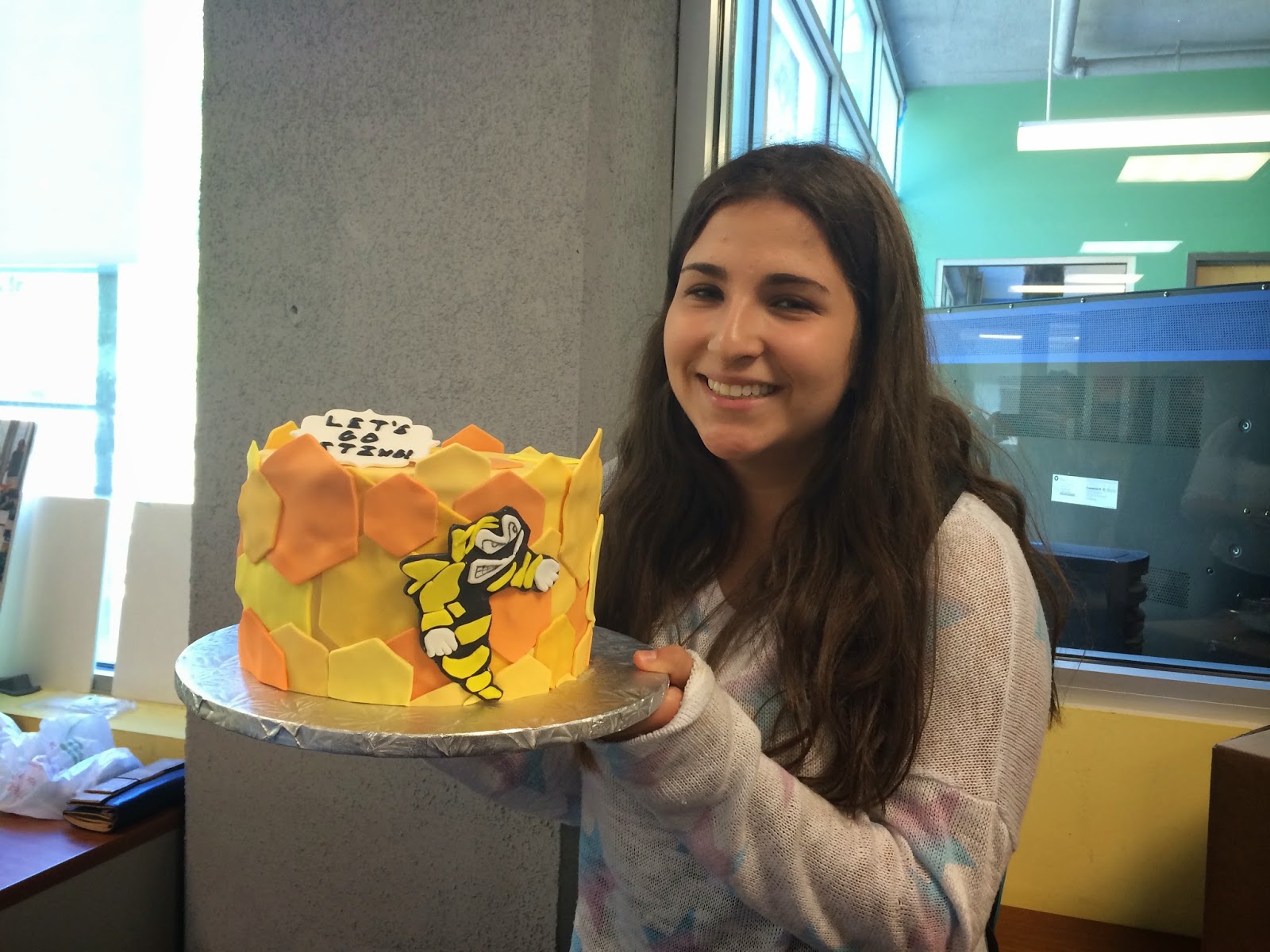How is senior year different from all other years? Eight years ago, before the first senior class of SAR High School, a committee of faculty members and administrators sat to plan what senior year should look like. With a desire to make senior year a bridge between high school and post-high school, and a healthy appreciation of how much seniors in May of senior year want to be sitting in classes, doing homework, and taking tests (answer: not very), one of their ideas was Senior Exploration. Despite many refinements in the ensuing years, the idea of Senior Ex. remains the same: after three and a half years of us telling the students what we think they should learn, this is their opportunity to direct their learning to their own areas of interest.
For five weeks following Pesach and before graduation, the curriculum is modified and seniors are released for a considerable number of hours to work on Senior Exploration. The majority of students pursue some type of fieldwork, a large number independently generate creative projects, and a select few conduct advanced research. Regardless of the topic, the seniors incorporate the Grand Conversation within their project. They spend time learning with Judaic Studies faculty on how to incorporate a piece of Talmud, Tanakh, or other prominent Judaic source within their individual theme.
The fieldwork options are limitless as students shadow working adults in professions like medicine, law, advertising, architecture, non-profit management, education, real estate, and many others. Some of the creative projects that SAR seniors have produced have been quite memorable. Most of these fulfill the –ing gerund: building, painting, designing, writing, filming, recording, etc. Last year, two students (Noam Spira and Daniella Herman) embarked upon a novel Senior Exploration concept: raising chickens. One senior raised his chickens within the SAR High School building, to Nick’s boundless delight, while another in the backyard of her home (we did not ask her parents how they felt about that.) Gabriel Santoriello created a chainmail armor shirt, meticulously spending hundreds of hours stitching together the medieval garment. In event of a siege by archers and lance-wielders, he will be well-protected. Two years ago, Alex Katz decided to film a documentary about Senior Exploration; it ended up being featured in the initial presentation of Senior Exploration to the following year’s 12th grade class. This year, many members of the Class of 2014 have mesmerized the faculty with their creativity. Kayla Roisman decided to combine her passion for photography and desire to build community through her Humans of SAR Facebook page. Arielle Firestone wrote, produced, and sang original songs in Gaelic. One of her faculty judges, school nurse Russi Bohm, exclaimed, "I didn't understand the words she was saying but I wanted to buy the CD. The music was beautiful." Finally, a number of seniors are given the approval to spend their hours in the library where they research and write a paper about a subject that they are passionate about and have not yet had the opportunity to study in depth.
One of the highlights of the Senior Exploration program is that it pairs the seniors with many of our faculty members. The students have the opportunity to work with a mentor throughout the second semester. The faculty mentor acts as a guiding hand, offering advice and insight while ensuring that the student stays on top of his/her Senior Exploration requirements. At times, the mentor has connections to a field where the student ends up spending the required hours. In fact, Zevi Blumenfrucht (class of 2008) parlayed his phenomenal Senior Exploration placement in the business industry, courtesy of a Mr. Alon Krausz contact, into a full-time job offer.
In addition to working together with the faculty, many of the 12th graders have the privilege of shadowing SAR parents other than their own during these five weeks. Over the years, scores of SAR parents have generously opened their offices to our students, educating them on their respective professions, enabling them to sit in on important meetings, and delegating essential tasks. The students gain a great appreciation for how hard SAR parents work!
As the culmination of his or her project, every senior presents her or his Senior Exploration in front of their mentor and two faculty judges. Family and friends are invited to observe the senior’s final graduation requirement, which becomes not just an evaluation but a celebration of what the senior has achieved. It is typical to find seniors sitting in on their fellow classmates' presentations throughout the day. Senior Exploration is a unique capstone to students’ experiences as members of Sting Nation.
Testimonial from Josh Gurin (SAR HS '13):
"Senior Exploration gave me the opportunity to think outside the box and do something memorable and special. I built a basketball court because it was something I could put my heart in and it is only because of the opportunity given to me that my project was successful, and I will have that forever."












